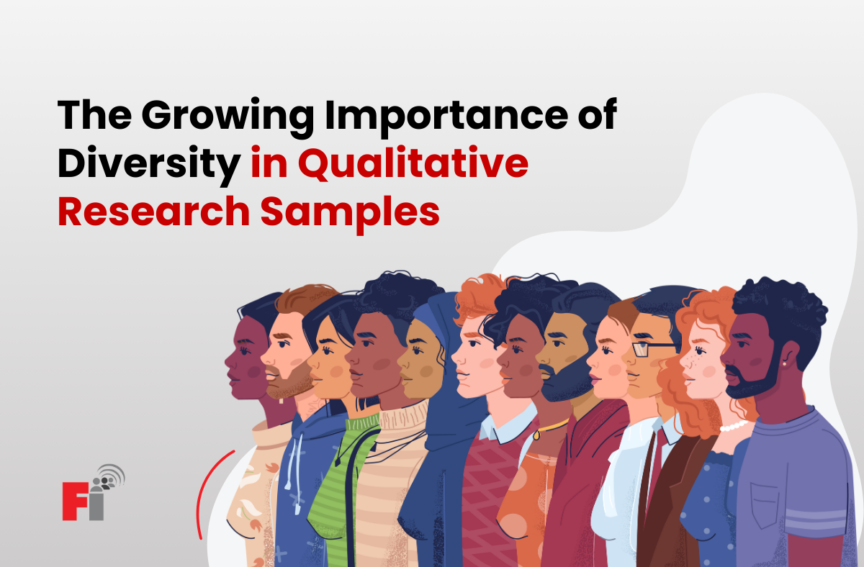As the consumer base expands across multiple cultures, ethnicities, and socioeconomic backgrounds, qualitative market research must also evolve. One of the most crucial steps in ensuring meaningful insights is incorporating diversity into research samples. By embracing diversity, qualitative research can better reflect the rich variety of consumer experiences, preferences, and behaviors.
Lack of Representation Hurts
Research Quality
All too often, research studies feature participants from limited backgrounds, offering skewed insights that don’t accurately represent the population at large. These studies run the risk of producing results that only reflect a narrow subset of society, leading to strategies that may alienate or overlook key groups. Brands that rely on these findings may fail to understand the full spectrum of their potential consumers and, worse, may reinforce stereotypes or make inaccurate assumptions about different groups.
The exclusion of diverse voices not only limits the scope of insights but also prevents businesses from developing products and services that meet the needs of all consumers.
For example, a skincare brand that only tests its products on lighter skin tones may overlook the specific needs of consumers with darker skin, leading to ineffective or even harmful results. Without adequate representation, qualitative research can miss the mark entirely, leaving brands out of touch with a significant portion of their audience.
Diverse Samples Deliver Deeper
Insights
The growing importance of diversity in qualitative research lies in the fact that it leads to more comprehensive, accurate, and actionable insights. By including participants from various ethnic, cultural, gender, and socioeconomic backgrounds, researchers can uncover unique insights that otherwise might be missed in a homogenous sample.
For instance, consumer habits, product preferences, and even emotional responses to marketing messages can vary significantly across different cultural groups. This knowledge allows brands to create more inclusive marketing strategies, develop products that appeal to a broader demographic, and ultimately foster stronger connections with diverse consumer bases.
How to Prioritize Inclusion in
Research Recruitment
The solution to the problem is simple yet powerful: prioritize diversity in your recruitment efforts. Actively seeking participants from underrepresented groups should be a standard practice in qualitative market research. This requires more than just broadening your recruitment pool; it means implementing deliberate strategies to ensure inclusivity.
It’s also important to use culturally sensitive and inclusive language in your outreach. Ensure that potential participants feel welcome and respected by highlighting how their voices will contribute to meaningful research outcomes. Remember, the more inclusive your recruitment efforts, the richer and more actionable your insights will be.
Building a Future on Inclusivity
At Focus Insite, we understand the value of diverse qualitative research and are committed to providing inclusive recruitment strategies for all our clients. Whether you’re looking to explore the cultural nuances of your target market or want to ensure that your research reaches all segments of society, our team is here to help.
For more information on how we can support your next qualitative market research project, reach out to us at bids@focusinsite.com. Let’s build more inclusive, impactful insights together.


